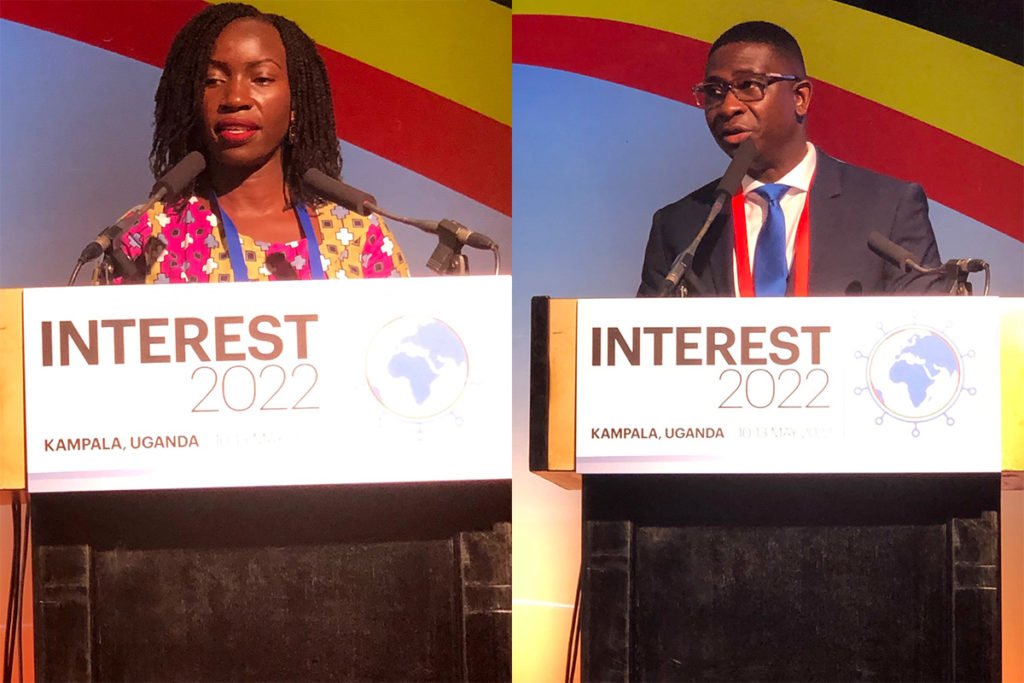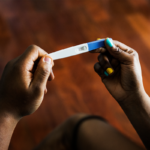In 2007, a group of scientists, led by Elly Katabira (Uganda) and Joep Lange (The Netherlands), launched the INTEREST Conference (International Conference on HIV Treatment, Pathogenesis and Prevention Research in Resource-Limited Settings) in Kampala, Uganda, to focus attention on the need for research and evidence to fight the HIV epidemic and address the shortage of HIV research capacity in Africa. INTEREST started off as an intimate gathering of about 200 scientists from Africa and other countries with a focus on stimulating African scientists to present their work, highlighting gaps in knowledge and application, and an explicit emphasis on mentoring. This year, during May 10-13, the conference was held again on the shores of Lake Victoria in Kampala as a hybrid meeting. A total of 439 in-person attendees and 143 virtual attendees, representing 45 countries, participated in this year’s conference. INTEREST was held virtually in 2020 and 2021. For many, the conference this year was their first in-person conference in more than two years and the enthusiasm was palpable!
Also on the opening day was a COVID-19-themed debate, chaired by Dr. Peter Kilmarx (United States), that was a crowd favorite at INTEREST. The debate statement was “Unvaccinated people should be denied access to public spaces to prevent COVID-19 transmission within the African context.” Audience members were able to vote for or against the statement before and after the debate, which was lively, heated and humorous. Dr. Nelson Sewankambo (Uganda) gave an impassioned plea in favor of the statement, while Dr. Francois Venter (South Africa), vigorously rejected the statement on moral, humanitarian, and biological grounds. Those against the statement won the day. Before the debate, 70% of the audience were opposed to the statement with little change an hour later, when 72% voted against.
One of the highlights of INTEREST 2022 was the opportunity to provide updates on new HIV interventions, including the use of long-acting antiretrovirals for HIV treatment and pre-exposure prophylaxis (PrEP). Dr. Linda-Gail Bekker (South Africa) and Dr. Sinead Delany-Moretlwe (South Africa) shared updates from recent and ongoing HIV prevention studies and newer technologies, including the rollout of these new game-changing interventions. The talks covered real-life applications of these technologies, especially within African settings.
- Better understanding of the various KP groups, their contributions to the epidemic, and how their needs could be better met
- The need to prevent new infections using all the proven interventions, including PrEP, and other new prevention technologies
- Ensuring early identification and prompt linkage to treatment of HIV positive KP through the various differentiated service delivery (DSD) models that have proven to be effective, including those that are KP-led, expanding access to viral load testing, including at community level
- Creating an enabling environment for better service access such as removing discriminatory laws, as well as preventing and responding to violence
- Greater commitment from governments to sustain funding, improve relevant policies and guidelines, and develop systems and capacity to monitor and track HIV outbreaks
The 16th INTEREST Conference ended with reflections from the conference chairs, Dr. Kwasi Torpey (Ghana), Dr. Elly Katabira (Uganda), Dr. Sabrina Bakeera-Kitaka (Uganda) and Dr. Andrew Kambugu (Uganda) on the way forward for the fight against HIV and COVID-19 and the critical role of African scientists in finding solutions to control these two pandemics. Dr. Katabira has been a constant throughout the 15-year history of INTEREST and received the heartfelt thanks and appreciation from the INTEREST family for his leadership and inspiration.
There was universal agreement that in-person meetings make an essential contribution to learning, information sharing and capacity building. The International Conference Committee selected Maputo, Mozambique as the setting for INTEREST 2023!
Photo Credit: Dr. Timothy Mastro/ FHI 360.



